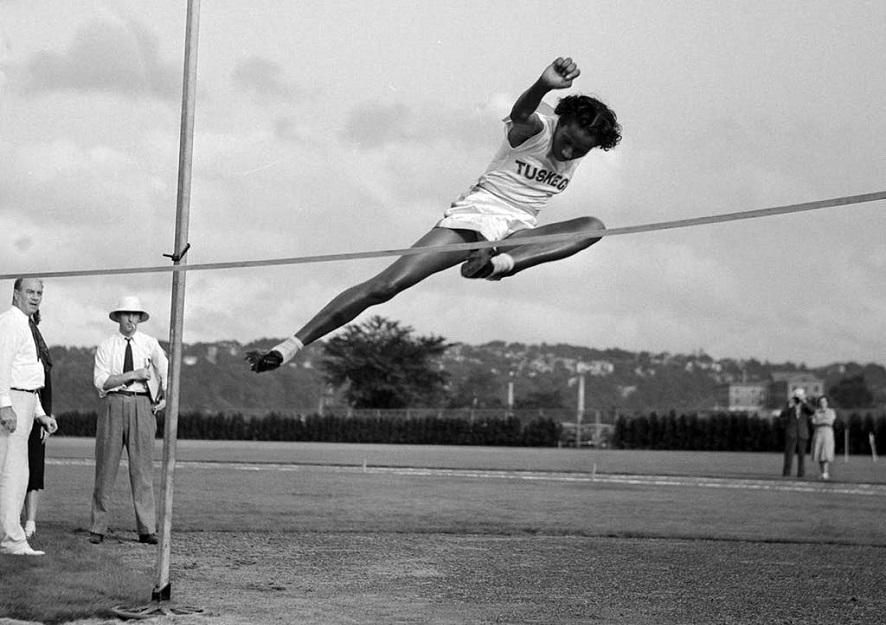Before the 1948 Summer Olympics, none of the American female athletes had won a gold medal in any of the competitions. However, Alice Coachman broke the jinx by soaring 5 feet, 6 1/8 inches’ record in the high jump at the London Games. She then made it into the history books as the first black woman to win an Olympic gold medal.
Coachman won the Olympic high jump at the age of 24. “I saw it on the board, ‘A. Coachman, U.S.A., Number One,’” she told NPR. “I went on, stood up there, and they started playing the national anthem. It was wonderful to hear.”
Following Coachman’s success, the United States saw African-American women such as Wilma Rudolph, Evelyn Ashford, Jackie Joyner-Keese, and Florence Griffith take over the U.S. track and field program and dominate the sport.
“I think I opened the gate for all of them,” she said in an interview with The Telegraph. “Whether they think that or not, they should be grateful to someone in the black race who was able to do these things.”
Here are five things you should know about the first black woman to win an Olympic gold medal, despite nursing a back injury and the first African-American to earn an endorsement deal:
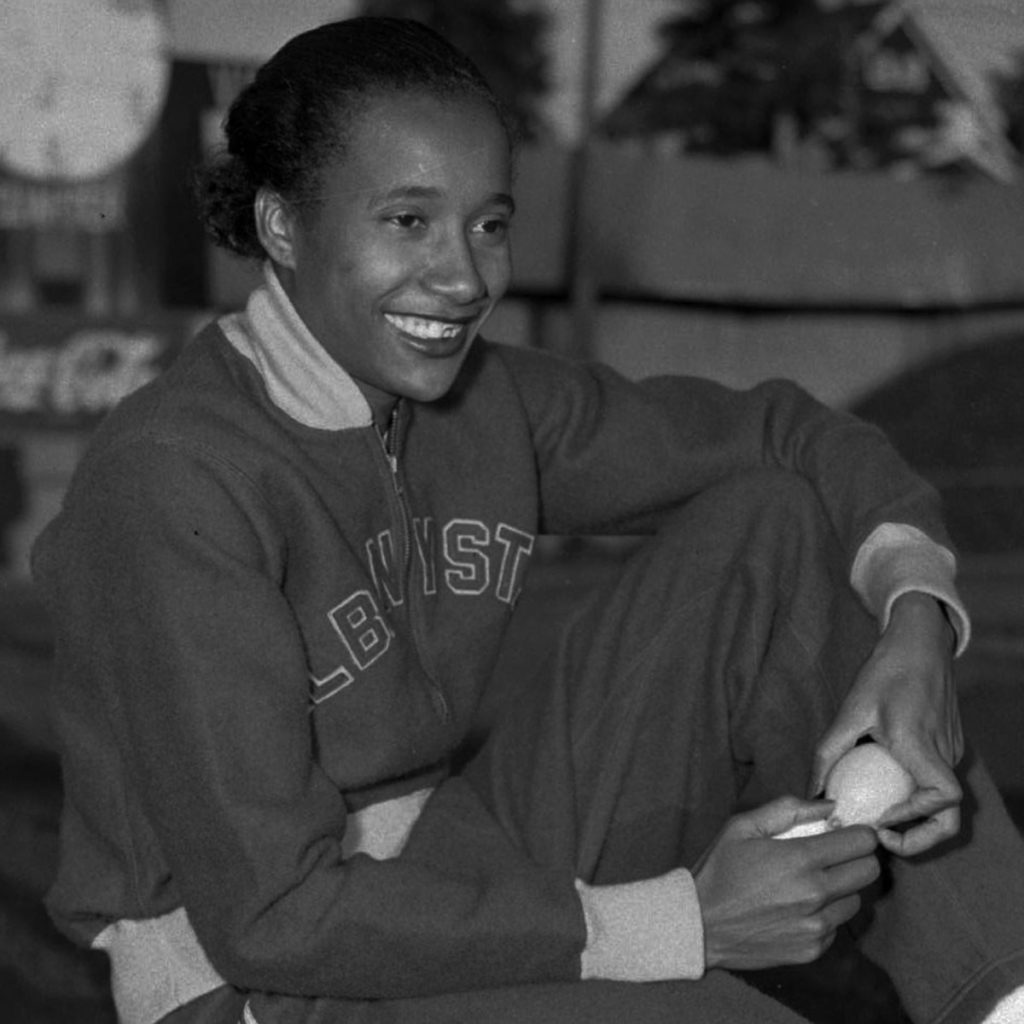
Early Life
Coachman was from a poor background in Albany, Georgia with little parental support for her sporting ambitions and segregation also limited her access to top-quality training facilities.
Undeterred, the youngster who had no idea she’d someday make history develop her strength and technique. She made a high jump crossbar out of rope and sticks. She also developed her stamina by running barefoot on hard dusty roads.
She grew up to take national titles in the 50m and 100m, as well as, the 400m relay and was also a tremendous basketball player. She took the American national high jump title 10 years in a row in the run-up to 1948.
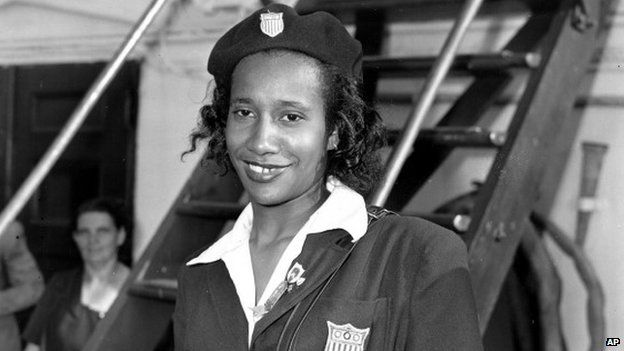
Career
Alice Coachman earned her first national title when she took first place in Waterbury, Connecticut, at the 1939 National AAU tournament. The then 14-year-old soared 5 feet, 2 inches to win the gold.
The day after Audrey Patterson’s historic Bronze medal, Coachman became the first black woman from any country to win a gold medal in track and field.
As an undergrad at the Tuskegee Institute, Coachman won 23 gold, four silver and two bronze medals competing in the Amateur Athletic Union of the United States. Her medal count rose to 26 gold, six silver and two bronze after she competed in the National AAU track and field events.
Earlier in the summer of 1948, she set a record for Americans by jumping 5 feet, 4 13/16 inches in Grand Rapids, Michigan. She set the American AAU record for the 50-meter dash at that same competition, making it across the finish line in 6.4 seconds.
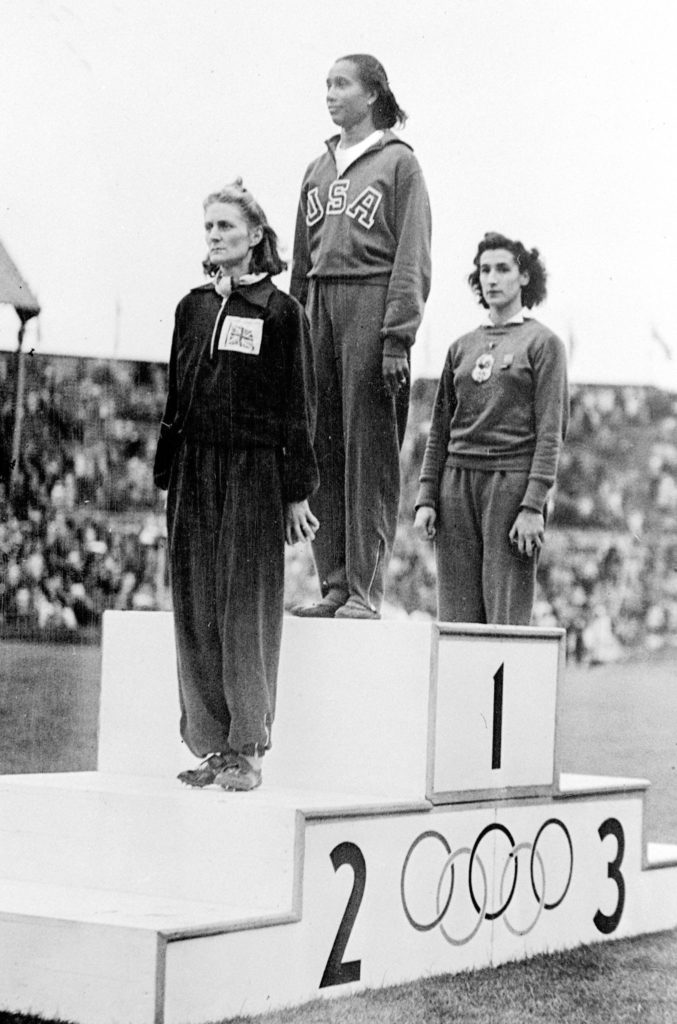
History Making Moment
Coachman was initially reluctant to compete at the Olympic Games, but eventually agreed to attend the trials and when she did, she smashed the existing national high jump record, despite a back injury.
The day after Audrey Patterson’s historic Bronze medal, Coachman became the first black woman from any country to win a gold medal in track and field. She surpassed the Olympic record of 5 feet, 4 3/4 inches held jointly by Americans Jean Shiley and Babe Didrikson since the 1932 Olympics.
About 83,000 spectators reportedly watched Coachman’s August 7, 1948 victory, as she competed against Dorothy Tyler of Great Britain. They both jumped the same height, but the American was given the nod because Tyler had several misses at lower heights.
King George VI presented Coachman with her gold medal. Four years later, Coachman became the first black female athlete to endorse an international consumer product when she was signed up to promote Coca-Cola.
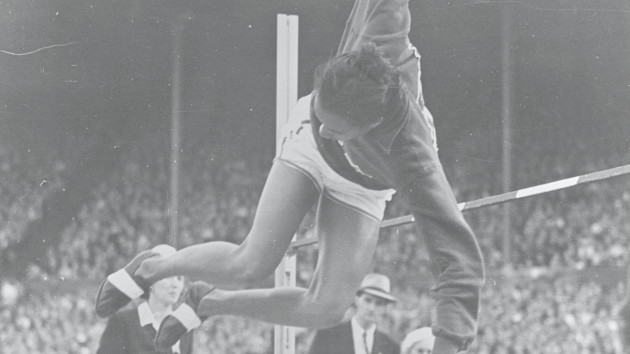
Prejudice
“We had segregation, but it wasn’t any problem for me because I had won,” she told The Telegraph. “That was up to them, whether they accepted it or not.”
A parade was thrown in honor of Coachman’s historic achievement at the XIV Olympiad when she returned home. “I made a difference among the blacks, being one of the leaders,” Coachman said in a 1996 interview with The New York Times. “If I had gone to the games and failed, there wouldn’t be anyone to follow in my footsteps. It encouraged the rest of the women to work harder and fight harder.”
Even though Coachman’s victory was celebrated with invitations to come aboard a British royal yacht and President Harry S. Truman congratulated her at the White House, racism was very evident on the day of her parade and celebration in her hometown.
During the celebration, Blacks and Whites were not allowed to sit next to each other in the Albany city auditorium. In fact, according to reports, while the mayor sat on the same stage with Coachman, he refused to shake her hand, and she exited through a side door at the conclusion of the event.
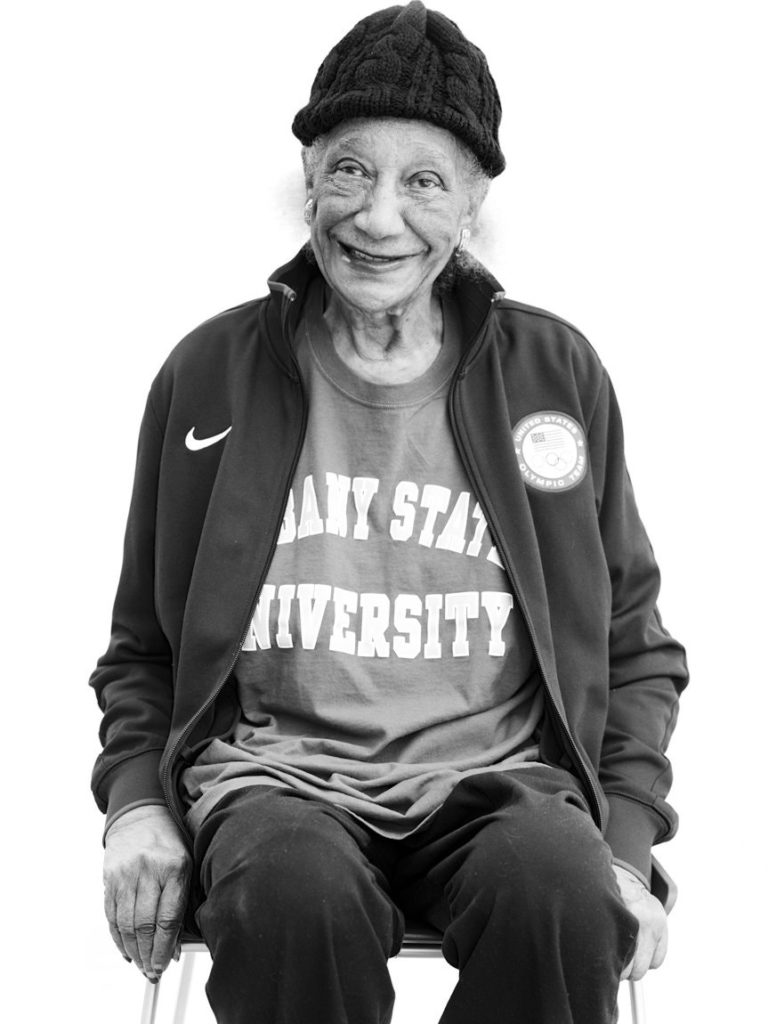
Later Years
At the 1996 Summer Olympic Games in Atlanta, Coachman was honored as one of the 100 greatest Olympians in history.
The 1940 and 1944 Olympics were canceled because of World War II. Coachman completed her final try in the high jump and that was the end of her track and field career. The following year, she graduated from Albany State College with her degree in home economics and a minor in science.
She became a teacher and created the Alice Coachman Track and Field Foundation in a bid to give back to those in financial need. Coachman was inducted to the United States Olympic Hall of Fame in 2004. She was also inducted into nine different halls of fame, including the National Track & Field Hall of Fame (1975) and the U.S. Olympic Hall of Fame (2004).
Months after being admitted to a nursing home after suffering a stroke, Coachman died on July 14, 2014, at the age of 90 in Georgia.


